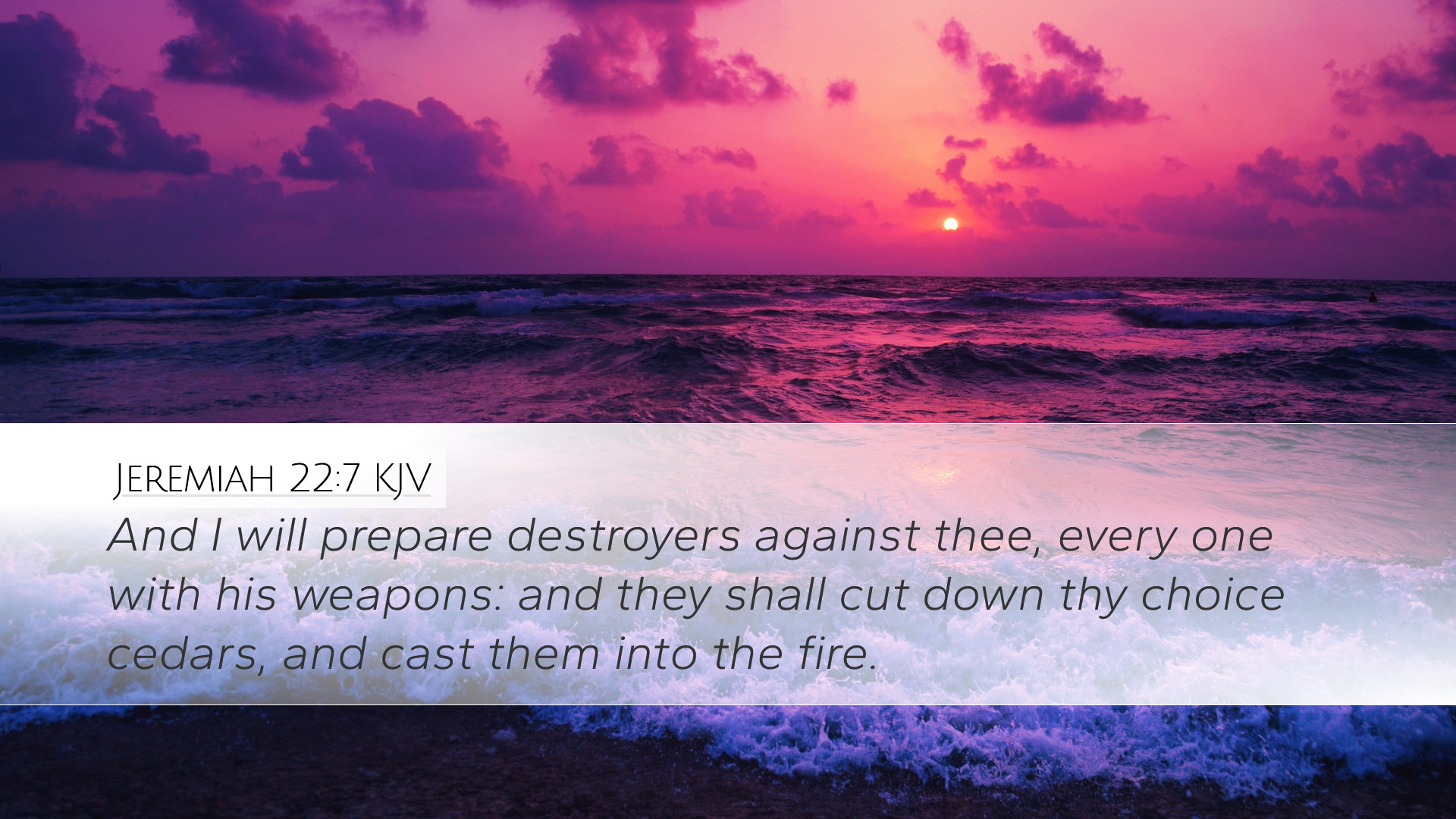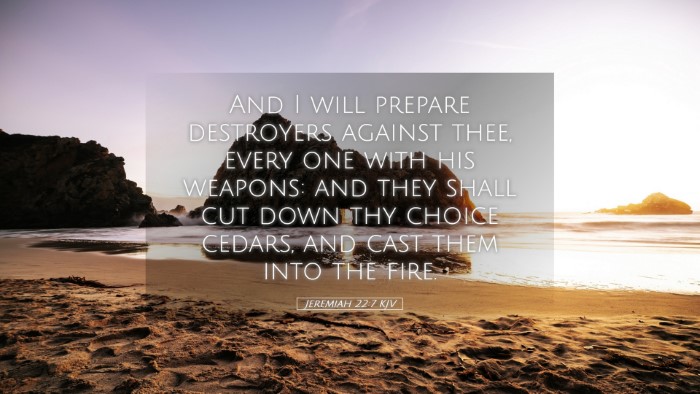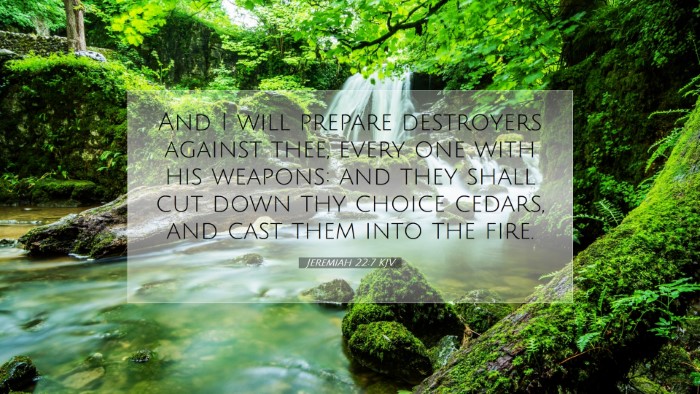Commentary on Jeremiah 22:7
Jeremiah 22:7 states: "And I will prepare destroyers against you, every one with his weapons: and they shall cut down your choice cedars, and cast them into the fire."
Contextual Overview
The Book of Jeremiah serves as a poignant reminder of God’s judgment against unfaithfulness, particularly focusing on the kings and leadership of Judah. The prophetic utterances of Jeremiah reveal the consequences of idolatry, moral decay, and breach of covenant. Chapter 22 specifically conveys God’s ire against King Jehoiakim and the royal establishment, which had swayed from divine ordinances.
Historical Background
At the time of this prophecy, Jerusalem was under threat from Babylon. Jehoiakim, being a vassal king, had prostrated Judah's independence to Babylonian demands. The mention of “destroyers” provides a glimpse into the coming siege and the dire fate awaiting the unrepentant nation. Prophecies like these not only served to warn the present generation but also to instruct future generations on the importance of obedience to God.
Theological Insights
The verse encapsulates several theological themes that resonate deeply within the fabric of Biblical doctrine:
-
Divine Judgment: The phrase "I will prepare destroyers" indicates God's sovereignty and active role in executing judgment. This reaffirms that God's justice may manifest through historical events and nations acting as instruments of His will.
-
Consequences of Disobedience: The imagery of cutting down "choice cedars" symbolizes the loss of pride and strength in a nation that forsakes its God. It serves as a powerful illustration of how spiritual bankruptcy leads to societal demise.
-
God’s Sovereignty: The divine preparation of “destroyers” highlights God's ultimate control over history. No power in existence is outside His jurisdiction, reinforcing the notion that human efforts apart from divine guidance lead to calamity.
-
Temporal vs. Eternal: The reference to earthly kings and their temporary might juxtaposed against God’s eternal kingdom illustrates the fleeting nature of worldly power in contrast to the permanence of God’s authority.
Commentary Excerpts
Matthew Henry observes that the “destroyers” mentioned are not merely agents of destruction but serve a higher purpose in executing God's plan. He emphasizes that Judah’s choice cedars symbolize its leaders and the people who took pride in their strength and stature, indicating that God will humble them.
Albert Barnes adds that this verse should be regarded in the context of God's long-suffering and patience, which ultimately gives way to justice. The choice cedars being cast into the fire signifies that even the most seemingly indestructible institutions are subject to God's decree if they stray from righteousness.
Adam Clarke interprets the cutting down of cedars as a metaphor for the royal houses of Judah. He argues that the metaphor is significant as it addresses the exaltation of these houses that will face ruin due to their idolatry. Clarke emphasizes the responsibility of rulers and leaders to uphold moral integrity to avoid divine retribution.
Practical Applications
For pastors, students, theologians, and Bible scholars, focusing on Jeremiah 22:7 draws several practical applications:
-
Leadership Accountability: This text serves as a cautionary reminder that leaders are held to higher standards and their decisions have profound implications for the people they influence.
-
Call to Repentance: The need for acknowledgment of sin and a return to God’s ways permeates this verse. Individuals and nations alike should heed the warnings embedded in God’s word.
-
Understanding God’s Providence: This passage encourages believers to trust in God's sovereign plan, recognizing that even in chaos, His purposes will prevail.
-
Value of Integrity: The literal destruction of choice cedars serves as a metaphor for the moral and ethical decay resulting from abandoning God's law, prompting a call to integrity in both public and private life.
Conclusion
Jeremiah 22:7 serves as a powerful exhortation concerning the fate of a nation that does not adhere to God’s mandates. It addresses leadership, national identity, and the profound implications of rebelling against divine standards. Insights derived from esteemed commentators elucidate the significance of this passage, illuminating timeless truths essential for God's people today.


